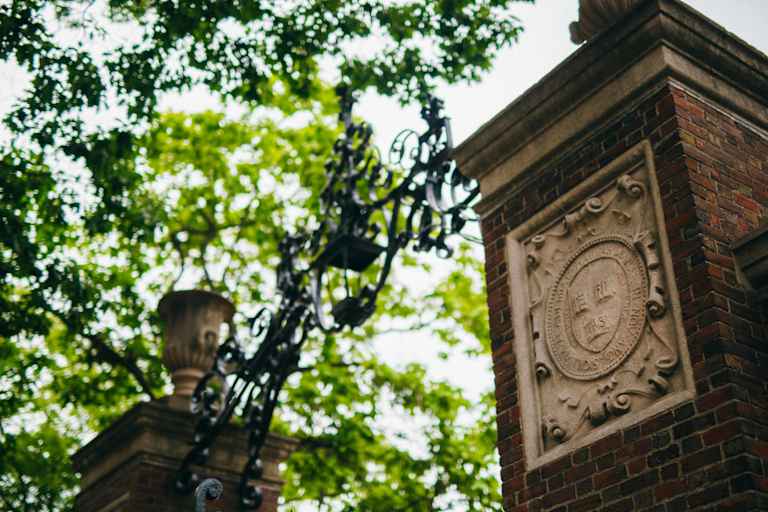How I Navigate the Pre-Professional Culture of an Ivy League College
I recently passed the halfway point of my time at the University of Pennsylvania, and lately I have been reflecting on what has happened so far and what is yet to come. It is fascinating to see all the different ways students go about their lives, what they prioritize, and how that has changed over the past three years.
What has surprised me here at Penn is that this Ivy League school, commonly perceived as the liberal arts bulwark of American culture, sometimes feels closer to a trade school than a traditional college. We are funneled into the same jobs, conditioned to dream the same dreams, and robbed of the magic that enchants the college experience. This creates a pressure-cooker environment fostering toxic competition, not lifelong friendships or memories.
I believe there are colleges that truly care about molding their students into inquisitive, dynamic individuals, but whether I have seen that here at Penn is … unclear, at best.
Brain Drain: The Temptation to Sell Out
Political scientists refer to the “horseshoe theory” when describing the unusual similarities between the far left and far right on the political spectrum. If we consider post-high-school education on a spectrum with vocational/trade schools on one side, conventional colleges in the middle, and the most competitive schools on the other, I contend that education also follows this horseshoe pattern. In other words, very few people at Penn are getting broad exposure to different disciplines and perspectives, within or outside the classroom.
There is a strong “pre-professional” attitude among students who oftentimes completely shun class to recruit for jobs in the “Big Three” industries — consulting, banking, or tech. The Wharton Business School dominates our cultural footprint.
Watching my friends slog through casing and networking and excel sheeting is heartbreaking because these were the same people who told me they were going to be human rights lawyers, professors, scientists, doctors … the list goes on. While there certainly are many interesting and dynamic students carving their own path through college, it is undeniable that pre-professionalism and conformity are shadows looming over the Penn psyche.
What’s devious is that my friends aren’t necessarily “selling out” because of how much they love the work, or even how much they’re getting paid. It’s because these companies prey on the insecurity and uncertainty that is perfectly normal for a college-age kid to have. Regardless of where you are on this hamster wheel, every student will face the same creeping doubts and insecurities about their life and future: What am I going to do with my life? How am I going to pay my bills? What am I passionate about? What’s next?
For many students who decide to attend an Ivy League school, we have spent our whole lives on a track. Go to a good high school. Play sports. Apply to college. Go to college and get into good clubs. Get good grades to secure an internship. Get a good internship and work hard to get a job. Get overworked in a company that doesn’t care about you, make a lot of money, and exit in two years to … where, exactly? The list goes on … and on … and on.
The further along we go, the blurrier the future becomes. I view this strategy as borrowing against the future with interest: buy a few years in school to push back real life. Work a few years in a dead-end job you hate to “save up” for a better future. Slowly burn out, telling your fading body and mind it’s all for a good cause … for later. By the time you cash in on your hopes and dreams, they’re so far in the past it’s hard to remember what they even were.

The Virtue of Being Deliberate
To be clear, I am no exception to this. The desire for certainty and conformity is powerful; it is telling that even after I went on a tirade about a broken system, I might still flush my brain down a gold-plated drain and plop myself into a meaningless desk job out of college. But hey — self-awareness is the first step.
The true tragedy of all this is that college is supposed to be a place to explore, challenge, and shake up your snow globe. That’s why I moved 14 hours away from Tallahassee to Philadelphia, because I knew the world didn’t end outside the suburban rings of my city.
The advice I always give to first-year students who are already worried about jobs: Why do the thing everyone else is doing? Not even as a contrarian and rebel, but as a logical, selfish, shrewd individual? Clearly, the thing everyone is doing will be artificially competitive — why not do something more interesting, less difficult, and perhaps even similarly well-paid?
For all I’ve said about Penn, it does not take away from the bottomless well of programs and resources aimed at making our lives as abundantly rich and stimulating as possible. Much of the cutthroat and pre-professional culture, while influential, is still “opt-in,” meaning an astute student can avoid it without too many problems. And, to be fair, my friends on conventional tracks are still (in the vast majority of cases) wonderful, vibrant, and interesting people.
But this essay, and the ideas herein, is not just an empty thought experiment. Excelling at a school like Penn requires a commitment to be deliberate. Choose to take interesting classes. Choose to be uncomfortable. Choose to leave the Penn bubble, physically and mentally. Choose to take control of your future. Most importantly, choose to make decisions for yourself, and avoid simply accepting the expectations that will soon descend like a fog around you.
Make college amazing. No one else will do it for you.
Meet the Author

Joey Jung is a junior at the University of Pennsylvania majoring in urban studies and political science. He grew up in Tallahassee, Florida and is chiefly interested in urban development, public policy, history, and data science. He loves to read, play spikeball, and learn odd skills, among other things.
Explore More College Resources

Are Ivy League Schools Worth the Cost?
Is the Ivy League worth it? Check out our guide to learn about the costs and benefits of attending an Ivy League college.

by Reese Lopez
Updated June 29, 2022



